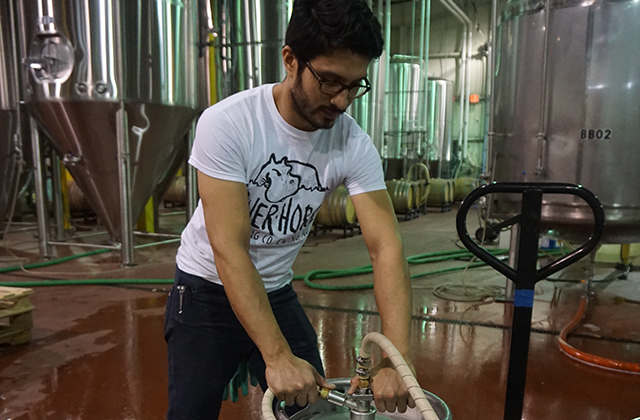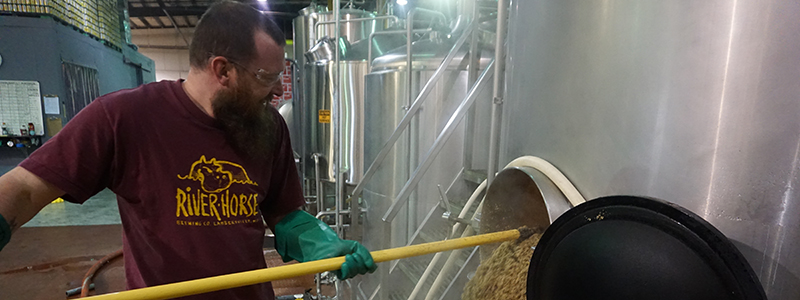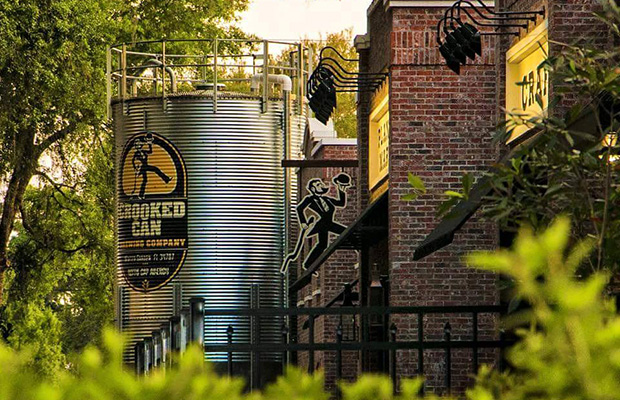
Understanding your own limitations in the brewing world can be a tough pill to swallow.
That’s not a dig at a brewer’s expectations of what will come out of the kettle but rather in the tough and tumble world of legality.
Federal, state and local laws can dictate what goes on inside the walls of a brewery, what goes out of a brewery and how it gets out of the brewery.
If the devil is in the details, well then Beelzebub is scattered all through the initial start up of a brewery.
It doesn’t end there, though as state by state variations in the details can be overwhelming. It can be vital that when someone seeks legal counsel that they find an attorney or law firm that is familiar with beer franchise law.
That’s different than standard franchise law, because most beer franchise law cannot be waived, especially in the form of distribution.
Not every contract given to a brewery by a distributor can even be enforceable according to lawyers that spoke with Brewer Magazine.

Many standard contracts from distributors state rights and benefits to the brewery that could never be enforced when the time came. Sometimes the distributors know that and sometimes the distributors do not know the law themselves. That’s why having the right kind of legal representation can be so crucial.
“I feel we do that well, because it’s based on a long protracted negotiation before we get into a relationship with a distributor,” said Alaskan Brewing’s Andy Kline, the brewery’s Communications Manager.
In 30 years of business, the Juneau, Alaska brewery has only entered 18 states, with Michigan and Ohio being the only states to be located in the Eastern Time Zone.
“Not because we aren’t asked to go places,” Kline said. “We are known and distributors in Virginia could sell us there. We have the reputation, but we are cautious.”
Using the same law firm since before opening in 1986, Alaskan has worked and grown with the same lawyer group.
“They have expanded our role with us and the market research we do,” Kline said. “There isn’t a book out there for the legal landscape for each state, it changes all the time and they are all complex. There are judgment calls all the time.”
Some examples that Kline gave were generalities: such as not being able to give a on-premise site in one state branded glassware since it’s not allowed to be served over the bar. Another example was not being able to promote events on its social media platforms because that could cause trouble in a different state, although it is totally fine in other areas of the country.
“We always have to exclude a state here or there because of some of the rules,” Kline lamented. “There are these weird little things state to state that you can get in big trouble on and you can just wander into them blind and innocently.
“State laws dictate to you a lot about how you proceed and the legality of it is a big part of it.”
International laws and entering its close neighbor of the province of British Columbia, Canada because of labeling laws, which would force an entire different label run of packaging, has help Alaskan shy away from leaving the U.S.
“It’s huge, and it’s a constant hassle,” said River Horse Brewing owner Chris Walsh about keeping in compliance with most of the laws both on the state and federal level. “The most frustrating thing is that it’s a moving target and no one can define what that target is.”
Walsh opened River Horse in 2007, before New Jersey eased restrictions on tasting room laws. But the changes even now have muddied the waters more, which lends to him or his staff being on the phone with multiple agencies — he counts at least 14 different ones — a lot of the time.
“We had food trucks pull up, now that’s not allowed. You can’t have live music or mug clubs,” he said. “The state never comes out and says what you can and can not do. There is the law and then there are the regulations and how they are applied.”
He said that keeping an open communication line has been key. And even with online means of making contact, picking up the phone seems to work best in getting an answer quicker than shooting off an email into cyberspace.
“Let them know what you are doing and document what they say,” Walsh said. “Sure, confirm it in an email but if you shoot an email to the TTB and wait for them to tell you something, it ain’t going to happen in any sort of timely fashion. [A lot of answers are] gray and you sort of have to take that into consideration when getting your answer.”
Walsh noted that asking yourself: ‘Are we defensible? Are we doing our best efforts?’ Are great questions to ask yourself when dealing with a legal matter.
“You can’t ignore what goes through the cracks, but if you are growing in the right direction, you are doing good.
“If you call the ABC you can get a different answer depending on who you talk to,” he said. “So it’s a constant battle, especially if you are in different states because those requirements do change.”
Distributors can help as well and if there are screw ups on the legal end, Walsh ensured that agencies aren’t going to “show up at your door with doom and gloom.”
“If you call them up and say ‘I’m dumb, you’re smart,’ they can be very helpful. It’s not the employees of the state, it’s just the way the laws are written and the language used is intentionally gray I think,” he said. “You have laws that are really hard to interpret because they are old along with a new layer of laws on top of it that does gives some uncertainty. The goal is to be mostly in compliance, that’s the reality of it.
“They want to not deal with you,” he joked. “They don’t want to talk to you, they just want the paperwork done and have you handle everything right.”
Some of the ongoing legalities that breweries must be mindful of are waste water and storm water permits; permits with the Department of Agriculture, along with state alcohol licenses, state label approvals; TTB requirements (in volume testing on bottles and reports and alcohol testing on brands) and TTB- and state-level permits for sites of operation.
“Just when you get one state figured out you are entering another state,” said Ninkasi CFO Nigel Francisco. “For some states we need multiple permits. Many of these do not expire on the same time frame so it seems like in any given month we are renewing a permit. This is just something you have to stay on top of.”
Getting legal help across all areas is important, said Otto Dilba, a co-founder of Ale Asylum.
“It’s important to find an attorney that provides good general counsel across a multitude of areas, but also has connections for those legal specialties for which they aren’t well versed,” he said. “For example, our general counsel is not specialized in trademark battles but with his connections to other law firms that specialize in this we have been well represented regardless of his lack of specialization in this area.”
The laws in distribution vary by state, and there is no federal law that trumps for a consistent scheme. But there is a very consistent theme and that is one of bias, said attorney Stacy Hostetter.
“Distribution laws were not designed to be fair – that is a common misunderstanding of breweries I think,” said Hostetter. “Distribution laws were specifically designed to favor one party over the other – and the advantage is given to distributors, not craft breweries.”
Breweries are usually shocked by this but the laws were built for a different time, a different market, she noted.
“The thing is, as we well know, the market has changed dramatically,” she said. “Now it is the distributors who are big business and the breweries who are small, family-owned operations. But law adapts slowly and, in all fairness, the original “evil” of big beer is still present so updating the laws requires a soft hand.”
There are also federal rules about labels — what can be on the label, what must be on the label, and what cannot be on a label — for breweries to worry about as well. Top that with similar state laws that don’t always match up with the federal laws and you can see how a bundle of problems can pop up. That’s because some breweries don’t expect to leave its state, but then expansion allows it, meaning a litany of new rules to abide by, even when working with a play on words. What may have been acceptable in one Springfield may not come across as funny two states over in a different Springfield.
“So choosing names and branding that can expand with the brewery is key, but not everyone looks that far ahead,” Hostetter said. “We talk to so many craft breweries that never really plan on expanding past, say, a regional footprint but low and behold a year or two later they are looking at interstate opportunities and markets.”





1 Trackback / Pingback